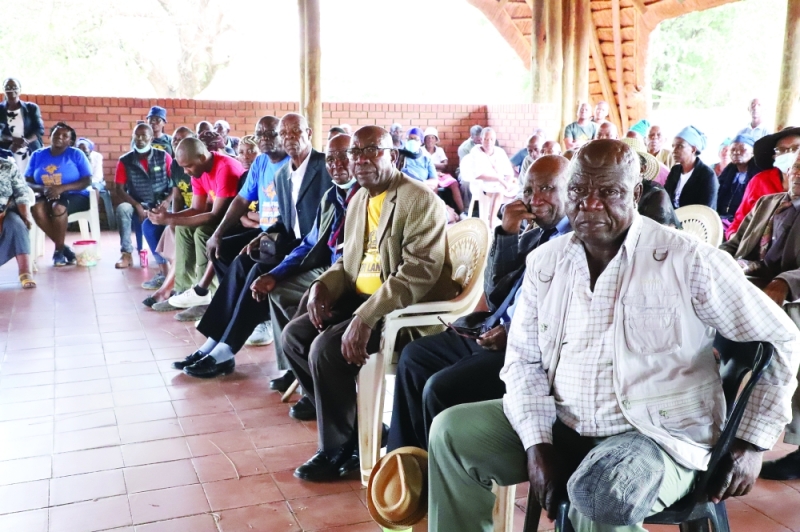Forest Hill 9-KO acquired without consent
Mompati Tlhankane | Monday March 13, 2023 06:00


This week Court of Appeal (CoA) upheld last year’s High Court’s decision to grant Bamalete ownership of their piece of land. “Based on the evidence on record, the farm was not purchased from the tribe but it was acquired by the Land Board through an Act of Parliament without the consent of the tribe.
That in itself gave rise to compulsory acquisition,” Judge President Tebogo Tau said when delivering the judgement on Tuesday. She said the High Court was correct in holding that the legislative scheme was unconstitutional for permitting the compulsory acquisition of the tribe’s farm in violation of the protections of the right to property enshrined under Section 8 of the Constitution.
“The High Court did not err in its decision for striking out the 1973 amendment to section 7 of the Tribal Territories Act as that amendment brought about an unconstitutional deprivation of property,” she indicated.
When the government appealed the case its argument was that Balete consented to transfer of the farm to the Land Board. The government relied on Cabinet Memorandum no.947 dated July 21, 1972, which sought authority to incorporate Farm Forest Hill 9-KO into the Bamalete Tribal Territory and the Hansard dated October 25 1972, where it was stated that the bill was approved by the House of Chiefs unanimously before being presented for approval before Parliament.
The government also relied on the minutes of the meeting of the Land Board which was held from June 17 to 19, 1985 where the Land Board was informed that the Farm was classified as tribal land. During that meeting the Land Board resolved that the tribe should be consulted. The Land Board argued on the merits that the farm was transferred with the consent of the tribe after extensive consultations in which the then leader, Kgosi Seboko Mokgosi, played a prominent role in his capacity as both the chairperson of the Land Board and local councillor. The Kgosi was also a member of the House of Chiefs which endorsed the legislative amendment. Furthermore, the Land Board also contended that it had since 1970 been responsible for administering the farm. It pointed out that although there is no record of when the tribe did meet, there was no reasonable assumption from the surrounding circumstances that the tribe did meet and consent to the statutory amendment.
On the other hand, the tribe argued that it never consulted when the amendment to the Tribal Territories Act was carried out. In the replying affidavit to the conditional counter-application, Kgosi Mosadi Seboko indicated that she was 21 years old when the amendment was made and no consultations with the tribe were carried out prior to the amendment.
Kgosi Mosadi further denied that the tribe ever voluntarily divested itself of the farm, pointing out that such divestiture would have been preceded by an extensive and transparent process of the consultation between various sections of the tribe and between the government and the tribe a process she said never took place. This was also confirmed by Matshidiso Chester Fologang and Jansen Otukile Batsalelwang. The evidence was not controverted. There is no evidence on record that the tribe was consulted and that it gave consent to being passed to the Land Board.
Advocate Sidney Pilane, counsel for the government, also admitted that there is no evidence that such consultations took place. He argued that the absence of minutes of any meeting by the tribe giving consent did not mean that there was no such meeting in that tribal meetings are generally not minuted.
The issued then turned on the constitutionality of the provisions of the 1973 amendment to section 7 of the Tribal Territories Act, and whether or not there was compulsory acquisition of the farm. The tribe contended that, the farm having been acquired from it compulsorily without it being consulted it was deprived of its ownership right over and interest in respect of the farm and rights to manage and administer the land, including rights to control use of the land, and exclude others. Additionally, it argued that the legislative scheme breached their rights in sections 3 (c) and 8 of the constitution which rights must be interpreted generously.
